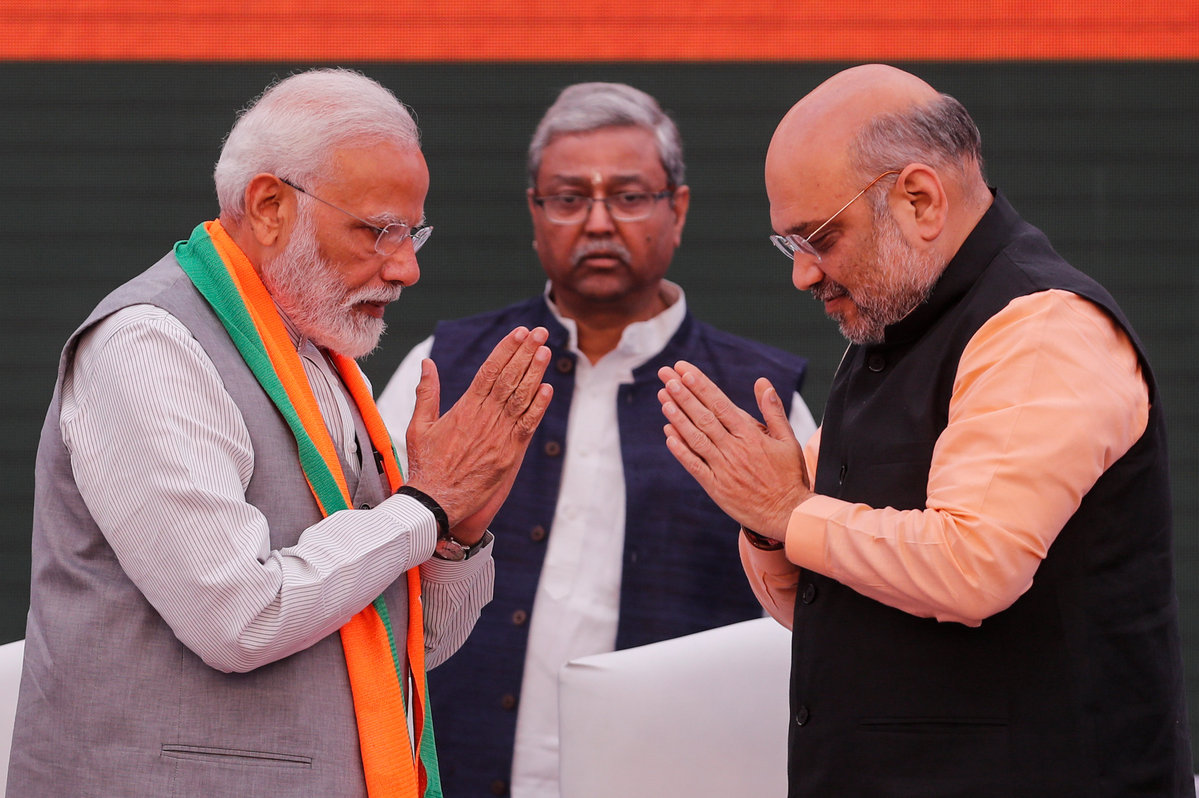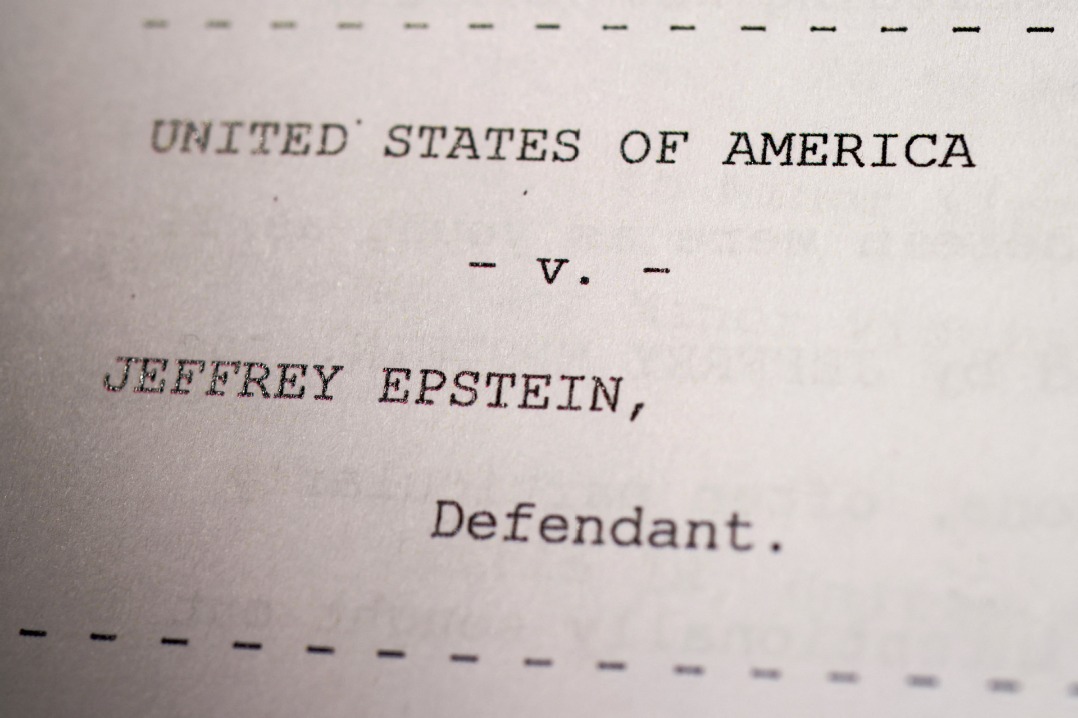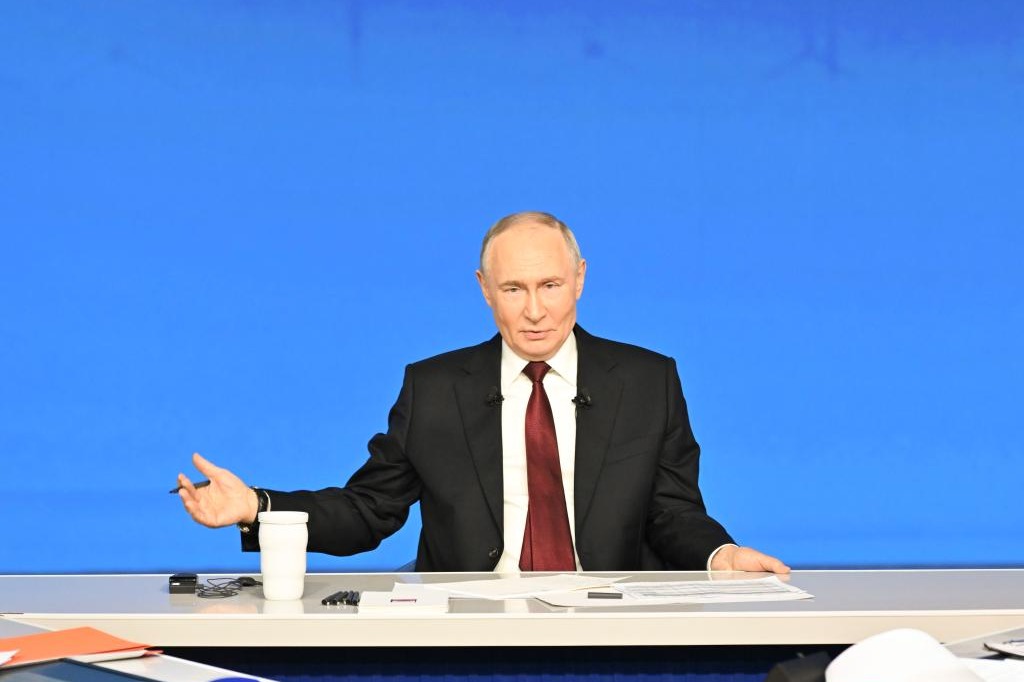India's Modi eyes win in mega-election


His ruling party closes in on majority for a second five-year term, survey shows
India starts a mega-election on Thursday with thousands of parties and candidates running in 543 constituencies across the nation, Agence France-Presse reported.
About 900 million people are eligible to vote between April 11 and May 19. Nearly 1.1 million electronic voting machines are transported through jungles and up mountains, including to a man living alone in a tiger reserve.
The ruling Bharatiya Janata Party, or BJP, led by Prime Minister Narendra Modi, released its election manifesto on Monday. The manifesto lays out the BJP platform, emphasizing national security and economic development, The Associated Press reported.
Modi, seeking a second five-year term, said the document described the path for India to "move from being a developing country to a developed country" by 2047, asking, "If the 21st century is Asia's century, should India lead it or not? Can we or can we not?"
Several other ministers in the BJP-led government spoke on Monday, including the finance minister, Arun Jaitley, who said that the government "wants to expedite the path of progress".
The main opposition Congress party released its manifesto last week, blasting the BJP for working "to divide the nation".
The BJP manifesto came on the heels of a similar document released by the Congress party last week which promised to "create wealth and guarantee welfare" to India's 1.3 billion people.
Modi, 68, and his BJP swept to power in 2014, the first party to win an absolute majority since Congress's Rajiv Gandhi in 1984.
Some of Modi's promises have fallen short, critics pointed, particularly in rural areas where drought, low prices and loan sharks have driven thousands of farmers to kill themselves in recent years.
The economic policy most voters remember is the 2016 overnight withdrawal of high-value banknotes worth 86 percent of the cash in circulation. Although attempting to bring the shadow economy into the light, the withdrawal caused mayhem.
However, Modi has made it easier for foreign firms to do business in India, and carried out the biggest tax reform since independence, although this too had big teething problems.
Slow economic growth
But economic growth has been too slow to give jobs to the million Indians entering the labor market each month, and unemployment is reportedly at its highest since the 1970s.
Rajiv's son, Rahul Gandhi, 48, leader of the Congress party, has accused Modi of causing a "national disaster".
"We want Modi to win again but his government should do something for our people," said Hazi Qasam Koradia, 60, a spice trader in Mumbai.
Modi's popularity rose in February as recent opinion polls suggest the Congress party is trailing the BJP ahead of elections.
"The biggest issue is that our country should be in safe and secure hands like Modi's," said Balwant Singh, a fruit seller in the northern state of Haryana.
The BJP's performance in several key states will determine whether it can retain power, and whether the silver-haired, silver-bearded Modi will remain prime minister.
If Modi falls short of a majority and is forced into an alliance, or if other parties team up against the BJP, then this could even spell curtains for the prime minister.
"It's difficult to predict," said Parsa Venkateshwar Rao, a veteran journalist and political commentator.
"It reminds me of 2004 when (former prime minister Atal Bihari) Vajpayee and the BJP lost when everyone expected them to win."
Agencies

































